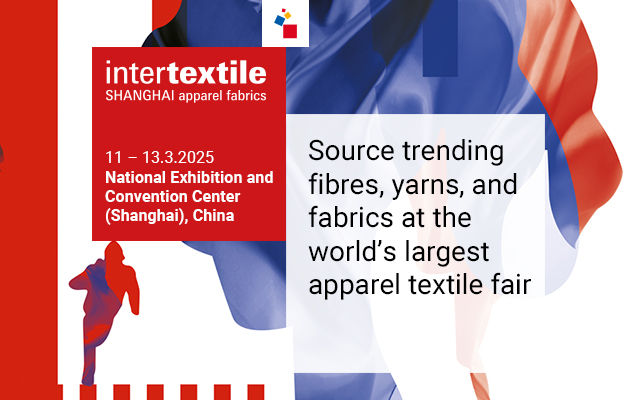Vegan fashion is an emerging movement within the fashion industry that seeks to align clothing and accessory choices with vegan principles. While traditional veganism focuses on abstaining from animal products in diet, vegan fashion extends this philosophy to clothing, aiming to reduce the use of animal-derived materials and promote cruelty-free alternatives. This article explores ways to achieve vegan fashion and examines its environmental impact.
Understanding Vegan Fashion
Vegan fashion is grounded in the ethical belief that animals should not be exploited for clothing. This philosophy rejects materials such as leather, wool, silk, and down feathers, which involve animal suffering and exploitation. Instead, vegan fashion promotes the use of synthetic and plant-based materials that do not harm animals.
Ways to Achieve Vegan Fashion
1. Choosing Alternative Materials
- Synthetic Fabrics: Materials such as polyester, nylon, and acrylic are widely used in vegan fashion. However, it is essential to consider their environmental impact, as they are derived from petrochemicals and are not biodegradable.
- Plant-Based Materials: Fabrics made from organic cotton, hemp, bamboo, and linen are popular vegan choices. These materials are biodegradable and often produced with less environmental harm compared to synthetic fabrics.
- Innovative Materials: Advances in technology have led to the development of novel vegan materials. Examples include mushroom leather (mycelium), apple leather (from apple pomace), and pineapple leather (Pinatex). These materials are designed to be sustainable and cruelty-free.
2. Ethical Brands and Certifications
- Vegan Certification: Look for clothing brands that are certified vegan by organisations like The Vegan Society. This certification ensures that no animal-derived materials or unethical practices are involved.
- Ethical and Sustainable Brands: Many ethical fashion brands align with vegan principles and emphasise sustainability. Brands like Stella McCartney, TOMS, and Matt & Nat offer fashionable, cruelty-free options.
3. Second-Hand and Vintage Clothing
- Thrift Shopping: Purchasing second-hand clothing extends the life of garments and reduces demand for new production. This practice supports vegan fashion by avoiding the use of new animal-derived materials.
- Vintage Stores: Vintage stores often carry unique pieces made from animal-derived materials. While these items may not align with vegan principles, purchasing them supports a circular fashion economy.
4. DIY and Upcycling
- Custom Designs: Creating your own clothing or accessories using vegan materials allows for full control over the materials used.
- Upcycling: Transforming old or discarded clothing into new items helps reduce waste and avoids the use of animal-derived materials.
5. Educating and Advocating
- Raising Awareness: Educating others about vegan fashion can drive change and influence more people to consider cruelty-free fashion choices.
- Supporting Policies: Advocate for policies and regulations that promote animal welfare and sustainable practices in the fashion industry.
Brands Supporting Vegan Fashion
As the movement towards vegan fashion gains momentum, numerous brands have emerged as leaders in providing stylish, cruelty-free alternatives. These brands prioritise animal welfare and environmental sustainability, offering a range of products from clothing to accessories. Some of them are discussed here:
Stella McCartney is a pioneer in the fashion vegan movement, renowned for its commitment to cruelty-free fashion. The brand is known for using innovative, sustainable materials such as vegan leather, recycled polyester, and organic cotton. Stella McCartney’s collections emphasise both high fashion and ethical practices, making it a go-to for those seeking luxury vegan fashion.
Matt & Nat, short for ‘Mat(t)erial and Nature’, is a brand dedicated to producing stylish vegan bags, shoes, and accessories. Known for its use of vegan leather made from recycled plastic bottles and other sustainable materials, Matt & Nat combines ethical practices with modern design. Its products are both fashionable and environmentally friendly.
TOMS is a well-known footwear brand that has made significant strides in vegan fashion. Its vegan collection includes shoes made from canvas, recycled materials, and other non-animal-derived fabrics. TOMS is committed to ethical practices and has expanded its product line to include vegan options that align with its mission of social responsibility.
Nuuwai is a vegan fashion brand that focuses on creating eco-friendly accessories, including bags and wallets. Its products are made from apple leather, a sustainable alternative to traditional leather, which utilises apple waste from the food industry. Nuuwai combines vegan principles with a commitment to reducing waste and promoting sustainability.
Vaute Couture is a fashion label that offers a range of vegan and eco-friendly outerwear. Founded by Leanne Mai-ly Hilgart, the brand is known for its use of high-performance, sustainable materials such as recycled polyester and plant-based fibres. Vaute Couture’s designs are both functional and fashionable, catering to those who seek warmth without compromising on ethics.
Angela Roi is a luxury handbag brand that specialises in vegan leather products. The brand emphasises ethical manufacturing processes and uses high-quality, cruelty-free materials. Angela Roi’s handbags are designed to be both elegant and sustainable, appealing to consumers who value both style and animal welfare.
Beyond Skin is a UK-based brand that offers vegan and cruelty-free footwear. The brand focuses on creating stylish and comfortable shoes using sustainable materials, including recycled fabrics and eco-friendly synthetics. Beyond Skin’s commitment to vegan fashion is reflected in its wide range of footwear options that are both chic and ethical.
GUNAS is a vegan handbag and accessories brand that prioritises cruelty-free materials and ethical production practices. Its products are made from high-quality, non-toxic materials such as vegan leather and recycled fabrics. GUNAS is dedicated to promoting animal welfare and environmental sustainability through its fashion offerings.
Will’s Vegan Store offers a variety of vegan clothing and accessories, including footwear, bags, and outerwear. The brand uses materials like organic cotton, recycled polyester, and vegan leather to create its products. Will’s Vegan Store is committed to ethical fashion and provides a wide range of vegan options for every occasion.
Reformation is a popular fashion brand known for its commitment to sustainability and ethical practices. The brand’s vegan collection features clothing made from plant-based fabrics, recycled materials, and other eco-friendly alternatives. Reformation’s focus on reducing its environmental footprint aligns with the principles of vegan fashion.
Environmental Impact of Vegan Fashion
Vegan fashion is not only about animal welfare but also has significant implications for environmental sustainability. Here’s a look at the environmental impact of transitioning to vegan fashion:
1. Reduction in Animal Agriculture
- Lower Carbon Footprint: Traditional animal agriculture, including the farming of animals for leather and wool, contributes significantly to greenhouse gas emissions. By avoiding animal-derived materials, vegan fashion helps reduce the carbon footprint associated with clothing production.
- Less Land Use: Animal farming requires extensive land for grazing and growing feed crops. By using plant-based materials, vegan fashion helps reduce the demand for land and minimises deforestation.
2. Resource Conservation
- Water Usage: Animal farming is water-intensive, with large amounts of water required for livestock and feed crops. Plant-based materials generally require less water, contributing to water conservation.
- Energy Consumption: Producing animal-derived materials is energy-intensive. Switching to vegan alternatives can reduce overall energy consumption in the fashion industry.
3. Waste and Pollution
- Biodegradability: Animal-derived materials like leather and wool are biodegradable but often treated with chemicals that can harm the environment. Vegan materials, especially those derived from plants, can be more environmentally friendly when they are biodegradable and free from harmful chemicals.
- Microplastics: Synthetic vegan fabrics, such as polyester, can shed microplastics that contribute to ocean pollution. Choosing high-quality, sustainable synthetic alternatives and minimising their use can mitigate this impact.
4. Innovative Sustainability
- Circular Fashion: Vegan fashion promotes the use of innovative materials that can be recycled or composted, supporting a circular fashion economy. This reduces the need for new resources and minimises waste.
Conclusion
Vegan fashion represents a significant shift in the fashion industry towards more ethical and sustainable practices. By choosing alternative materials, supporting ethical brands, and advocating for change, individuals can contribute to a more compassionate and environmentally friendly fashion industry. While challenges remain, including the need to balance sustainability and practicality, vegan fashion offers a promising path towards a future where style and ethics can co-exist harmoniously.
Embracing vegan fashion not only aligns with a commitment to animal welfare but also helps address pressing environmental issues. As the movement grows, it is likely that we will see continued innovation and progress in creating fashion that is both stylish and sustainable. The growing presence of brands committed to cruelty-free and eco-friendly practices further illustrates that vegan fashion is not just a niche trend but a burgeoning sector within the industry.









Comments